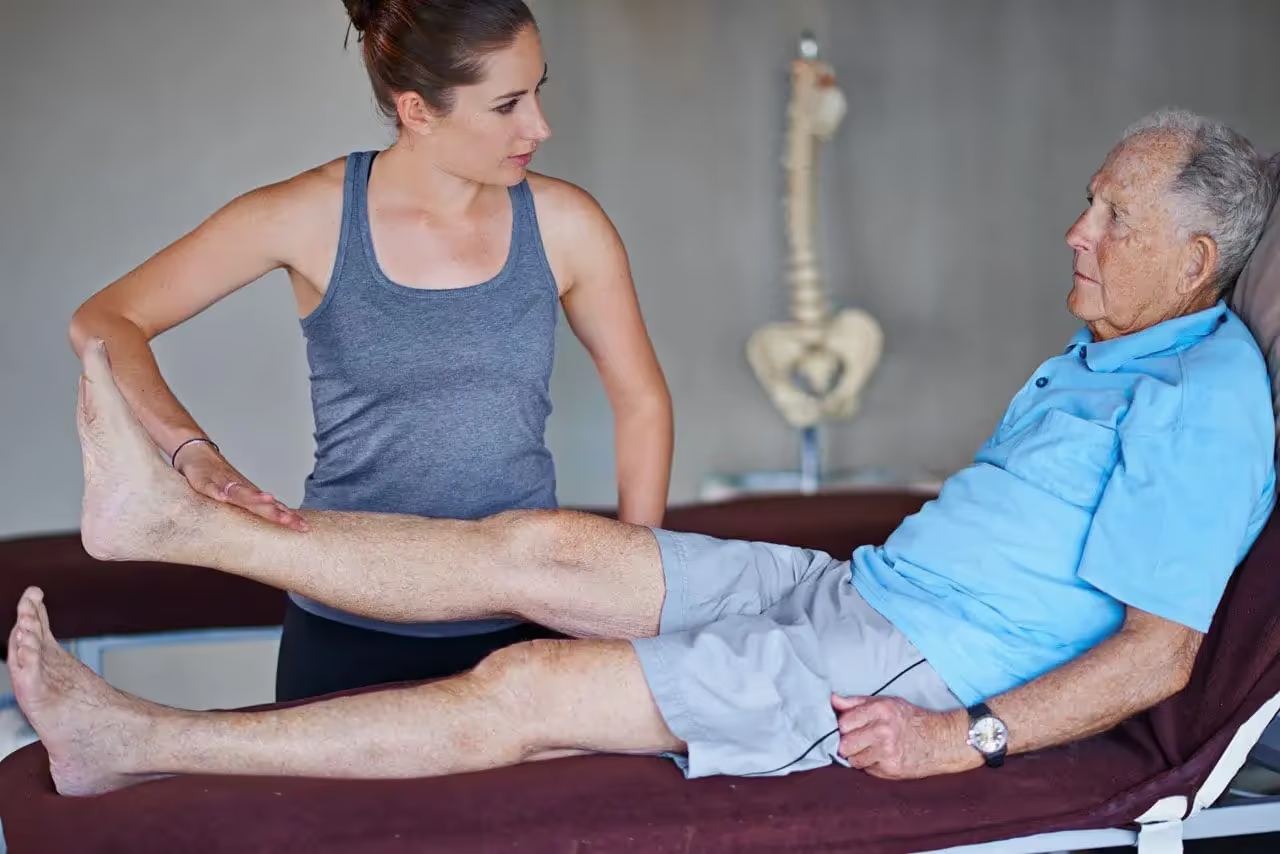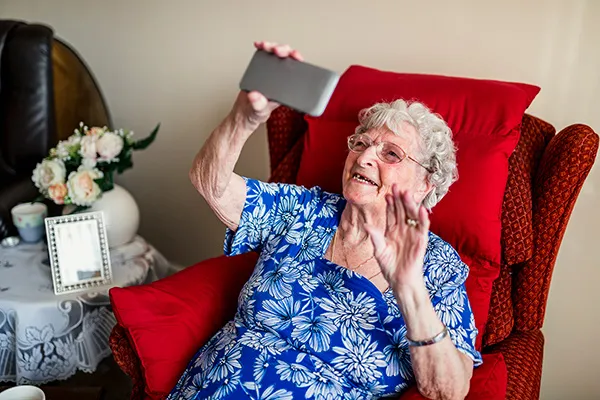Keeping up with doctor’s appointments is essential to managing health and staying informed, but it can often feel overwhelming. From scheduling and transportation to understanding medical advice and ensuring proper follow-up, there are many details to manage. This is where Understood Care can help. Our advocates serve as trusted guides, working alongside you or your loved one to make the process easier, more organized, and more comfortable.
Personalized Support Before and After Every Appointment
Understood Care advocates provide hands-on help with all aspects of medical visits. We help you schedule appointments, confirm provider information, and prepare for the visit itself. This might include reviewing your questions ahead of time, making sure prescriptions are current, or gathering any medical records needed. After the appointment, we help you understand the doctor’s recommendations and take the right steps to follow through on care instructions, referrals, or additional tests.
A Partner to Help You Understand Your Care
Medical visits can involve unfamiliar language, new diagnoses, or complex treatment plans. Your advocate is there to help translate this information into clear, understandable terms. We make sure you feel confident about what was discussed during the visit and that you know what actions to take next. If something is unclear or left unanswered, your advocate can follow up with your provider to get the information you need.
Coordination Across Your Care Team
Many people receive care from more than one doctor. Your advocate helps ensure that your care is well coordinated across primary care providers, specialists, and other professionals. We help share information between offices, keep records consistent, and make sure appointments align with your overall care goals. This reduces confusion and helps prevent important details from being overlooked.
Support for Getting to and From the Appointment
Transportation should never be the reason you miss a doctor’s visit. Your advocate helps you arrange reliable ways to get to and from appointments. Whether that means booking a ride service, coordinating with a caregiver, or finding community transportation resources, we make sure you have safe and timely access to care. We also consider mobility needs, language assistance, and other accessibility factors to support your comfort and safety.
Emotional and Practical Support Throughout
Doctor’s visits can bring up feelings of stress, uncertainty, or fatigue, especially when managing long-term conditions or complex health needs. Understood Care advocates are here to offer steady support throughout the experience. We are here to listen, provide encouragement, and help you make informed decisions without feeling overwhelmed.
Confidence in Every Step of the Journey
With Understood Care, you are never alone in managing your medical appointments. From the moment you schedule your visit to the follow-up that comes afterward, your advocate is there to help you stay organized, prepared, and empowered. We make it easier to stay connected to the care you need and to move forward with confidence.
Introduction
Finding safe and affordable housing as you age should feel clear and manageable. If you are comparing options, wondering what programs pay for, or trying to figure out where to start, you are not alone. This guide explains common senior housing settings, how costs are covered, and the practical steps you can take right now. It also shows how an advocate can stand with you during applications, calls, and follow up so you do not have to do this by yourself.
What the video says in simple terms
In the video on this page, Amanda from Understood Care shares what many of our patients face when looking for housing. She describes working with people who live on Social Security and cannot find a place they can afford. She explains that our advocates connect with counties, city commissioners, and state offices, including Senate contacts, so you have a real person helping with applications and elevating your case. The goal is simple. You should be heard and you should get what you need.
What senior housing means
Senior housing is an umbrella term for places where older adults live with varying levels of support. Some settings focus on community and convenience. Others provide daily personal care or medical nursing. Choosing the right fit depends on your health, safety, support system, preferences, and budget.
Common settings
- Independent living or retirement communities that offer private apartments and shared amenities
- Assisted living that adds daily personal care such as bathing, dressing, and medication reminders
- Memory care programs that specialize in dementia support inside secure, structured environments
- Nursing homes that provide twenty four hour nursing and rehabilitation for people who need skilled care
- Continuing care retirement communities that offer multiple levels of care on one campus
If you are not sure where to start, an advocate can help you weigh support needs, costs, services, and location. Understood Care can also help with mobility and home safety planning if staying home is best for now at https://understoodcare.com/care-types/mobility-equipment

Types of senior housing at a glance
Independent living
Independent living is designed for older adults who want a community setting without daily personal care. You typically pay monthly rent for a private unit and optional meal plans and activities. Transportation support can be arranged through community resources or with help from an advocate at https://understoodcare.com/care-types/transportation-help
Assisted living
Assisted living provides help with daily activities like dressing, bathing, meals, and medication reminders. Staff are present around the clock for safety checks and urgent needs. The setting is social and home like. It is not the same as a nursing home and does not provide continuous skilled nursing.
Memory care
Memory care offers structured routines, secure spaces, and staff trained in dementia care. It can be a dedicated unit within assisted living or a separate residence. Programs focus on orientation, calm routines, and safety.
Nursing homes
Nursing homes provide skilled nursing care and rehabilitation. This is best for people who have complex medical needs, need frequent nursing assessments, or are recovering after a hospital stay and need therapy.
Continuing care retirement communities
A continuing care retirement community offers independent living, assisted living, and nursing home care on the same campus. You can move between levels if your needs change.
What programs pay for and what they do not
Understanding coverage helps you plan and avoid surprises.
Medicare
- Medicare is health insurance. It does not pay for room and board in assisted living and does not pay for most long term custodial care in any setting
- Medicare may cover short stays in a skilled nursing facility after a qualifying hospital stay and may cover home health services when medical criteria are met
- If you live in assisted living, Medicare still covers your medical visits, hospital stays, and other covered services like it would for anyone else
Medicaid
- Medicaid is a joint federal and state program for people with limited income and assets
- Many states offer Home and Community Based Services that can cover personal care and services in the home or assisted living for people who qualify
- Rules and programs vary by state, and waitlists are common. An advocate can help you understand your options and start applications early
HUD housing programs
- Section 202 Supportive Housing for the Elderly helps create affordable apartments with supportive services for adults age sixty two and older who qualify by income
- Housing Choice Vouchers, often called Section 8, help pay a portion of rent in the private market when you qualify through your local public housing agency
- Public housing includes apartments reserved for older adults and people with disabilities in some communities
Practical takeaway
Plan for a mix of funding. Many people combine Social Security income, savings, and state or federal programs. If you need help mapping this out, an advocate can walk you through options and timelines.
Aging in place with safety and support
If your goal is to remain at home, support is available. Home health services may be covered when you meet Medicare criteria. Personal care, meal support, and transportation can be arranged through community programs and local agencies. Fall prevention is essential. Start with simple steps such as removing hazards, improving lighting, and adding grab bars. For equipment and home modifications, see https://understoodcare.com/care-types/mobility-equipment . For rides to appointments, see https://understoodcare.com/care-types/transportation-help.
How an Understood Care advocate helps
The video message is clear and hopeful. You deserve a guide who stands with you. Here is what that looks like in practice.
Assessment and planning
- We listen to your goals, budget, and support needs
- We review health details that affect housing type and safety
- We help decide whether to pursue community housing, assisted living, or nursing home placement, or to stabilize services at home for now
Documentation and applications
- We create a checklist of documents you will need such as ID, Social Security award letters, bank statements, medical forms, and care assessments
- We help complete applications for Medicaid Home and Community Based Services if appropriate and coordinate with your clinicians for required forms
- We apply for HUD programs when you qualify and track waitlists with your public housing agency
Coordination with counties and commissioners
- We communicate with county offices, city commissioners, and state contacts to move applications forward
- We organize information and follow up so your case does not stall and decision makers see what you need
Logistics that keep things moving
- We help you tour residences and prepare questions to ask
- We schedule transportation to tours and medical visits at https://understoodcare.com/care-types/transportation-help

A step by step plan you can start today
- Write down what you need help with each day such as bathing, meals, medications, walking, and getting to appointments
- Decide your top priorities such as staying near family, budget, and medical support
- Call your local Area Agency on Aging through Eldercare Locator to learn about waitlists and programs in your county
- Gather documents now even if you have not decided on a residence. Applications move faster when paperwork is ready
- Tour at least three places that match your needs. Visit at different times of day if possible
- Ask direct questions about staffing, response times, medication support, transportation, and what happens if your needs change
- Review the contract line by line. Ask what is included in the base rate and what costs extra
Safety and quality checks when you tour
What to look for
- Clean, well lit hallways and common areas
- Staff who greet residents by name and respond to call lights quickly
- Clear plans for falls, emergencies, and medical changes
- Medication management procedures that match your needs
- Dining that supports your diet and culture
- Activities that match your interests and mobility
Questions to ask
- How are personal care plans created and updated
- How does the residence communicate with your clinicians
- What is the average response time for help requests
- What services cost extra and how are rate increases handled
- How are concerns or complaints resolved
Costs, waitlists, and timing
Housing is a mix of availability and eligibility. In high demand areas, waitlists for vouchers or subsidized residences can be long. Apply early and keep contact information current. If you receive an offer, respond quickly. If you have a sudden health change, an advocate can help coordinate a safe transition and make sure your services continue without interruption.
How we can help you right now
If you want a partner to help with outreach to counties and commissioners, to assemble paperwork, and to schedule tours, our team would be honored to help. Learn more about patient navigation and support services at
transportation or equipment is holding you back, start here:

FAQ
What is the difference between assisted living and a nursing home
Assisted living focuses on daily personal care in a home like setting and does not provide continuous skilled nursing. A nursing home provides twenty four hour nursing and rehabilitation for people who need medical monitoring or complex care.
Does Medicare pay for assisted living
Medicare does not pay for room and board in assisted living. Medicare continues to cover your medical care, such as doctor visits and hospital services, while you live there. Short nursing home stays may be covered after a qualifying hospital stay when criteria are met.
What is Section 202 supportive housing for the elderly
Section 202 is a HUD program that funds affordable apartments with supportive services for qualifying older adults. Properties are run by local sponsors. Rent is typically based on income. Availability varies by location.
What are Housing Choice Vouchers and can older adults use them
Housing Choice Vouchers help eligible households pay rent in the private market. Many older adults qualify based on income. You apply through your local public housing agency. Waitlists are common, so apply as early as you can.
Can Medicaid help with assisted living
In many states, Medicaid Home and Community Based Services can help pay for personal care services delivered in assisted living for people who meet medical and financial criteria. Medicaid usually does not pay the room and board portion. Rules vary by state.
How do I find programs and housing in my county
Use the Eldercare Locator to connect with your Area Agency on Aging and local resources. They can explain waitlists, eligibility, and application steps for your county.
How can an advocate actually speed things up
Advocates gather documents, complete applications correctly, and keep close contact with county offices, commissioners, and state partners. They follow up, address missing information, and prepare you for tours and interviews so steps are not repeated. If transportation or equipment is a barrier, they arrange practical solutions so you can move forward.
What if I want to stay home for now
You can strengthen safety at home with equipment and fall prevention, arrange rides to care, and use home health when criteria are met. Explore options at https://understoodcare.com/care-types/mobility-equipment and https://understoodcare.com/care-types/transportation-help.
Can I afford this on Social Security alone
Affordability depends on your local market and program eligibility. Apply early for vouchers and subsidized housing. Ask residences about income based units. Review Medicaid options in your state. An advocate can help you compare total monthly costs and find programs that fit your situation.
References
- National Institute on Aging. What is long term care. https://www.nia.nih.gov/health/long-term-care/what-long-term-care
- National Institute on Aging. Assisted living and nursing homes overview. https://www.nia.nih.gov/health/assisted-living-and-nursing-homes
- National Institute on Aging. Long term care facilities including assisted living, nursing homes, and continuing care retirement communities. https://www.nia.nih.gov/health/assisted-living-and-nursing-homes/long-term-care-facilities-assisted-living-nursing-homes
- National Institute on Aging. How to choose a nursing home or other long term care facility. https://www.nia.nih.gov/health/assisted-living-and-nursing-homes/how-choose-nursing-home-or-other-long-term-care-facility
- National Institute on Aging. Paying for long term care. https://www.nia.nih.gov/health/long-term-care/paying-long-term-care
- Centers for Disease Control and Prevention. Facts about falls in older adults. https://www.cdc.gov/falls/data-research/facts-stats/index.html
- Centers for Disease Control and Prevention. About older adult fall prevention. https://www.cdc.gov/falls/about/index.html
- Centers for Disease Control and Prevention. Patient and caregiver resources for fall prevention. https://www.cdc.gov/steadi/patient-resources/index.html
- Medicare. Long term care coverage. https://www.medicare.gov/coverage/long-term-care
- Medicare. Home health services coverage. https://www.medicare.gov/coverage/home-health-services
- Centers for Medicare and Medicaid Services. Facility based care and coverage basics. https://www.cms.gov/training-education/partner-outreach-resources/american-indian-alaska-native/ltss-ta-center/information/ltss-models/facility-based-care
- Medicaid. Home and Community Based Services overview. https://www.medicaid.gov/medicaid/home-community-based-services
- Medicaid. Home and Community Based Services 1915 c waivers. https://www.medicaid.gov/medicaid/home-community-based-services/home-community-based-services-authorities/home-community-based-services-1915c
- U S Department of Housing and Urban Development. Information for senior citizens. https://www.hud.gov/helping-americans/seniors
- U S Department of Housing and Urban Development. Section 202 supportive housing for the elderly program. https://www.hudexchange.info/programs/section-202/
- U S Department of Housing and Urban Development. Housing for seniors and persons with disabilities overview including Section 202 and Section 811. https://www.hud.gov/hud-partners/multifamily-housing-for-seniors-and-persons-with-disabilities
- U S Department of Housing and Urban Development. Housing Choice Voucher program overview. https://www.hud.gov/helping-americans/housing-choice-vouchers
- U S Department of Housing and Urban Development. Public housing program overview. https://www.hud.gov/helping-americans/public-housing
- Administration for Community Living. Eldercare Locator. https://eldercare.acl.gov/home
This content is educational and is not a substitute for medical advice. Always consult your healthcare provider for personalized care.
Want a patient advocate by your side?
Quick & EasyMeet a supporting physician today for your 20-minute intake session.
Personal SupportAt Understood Care, you're seen, heard, and cared for.






